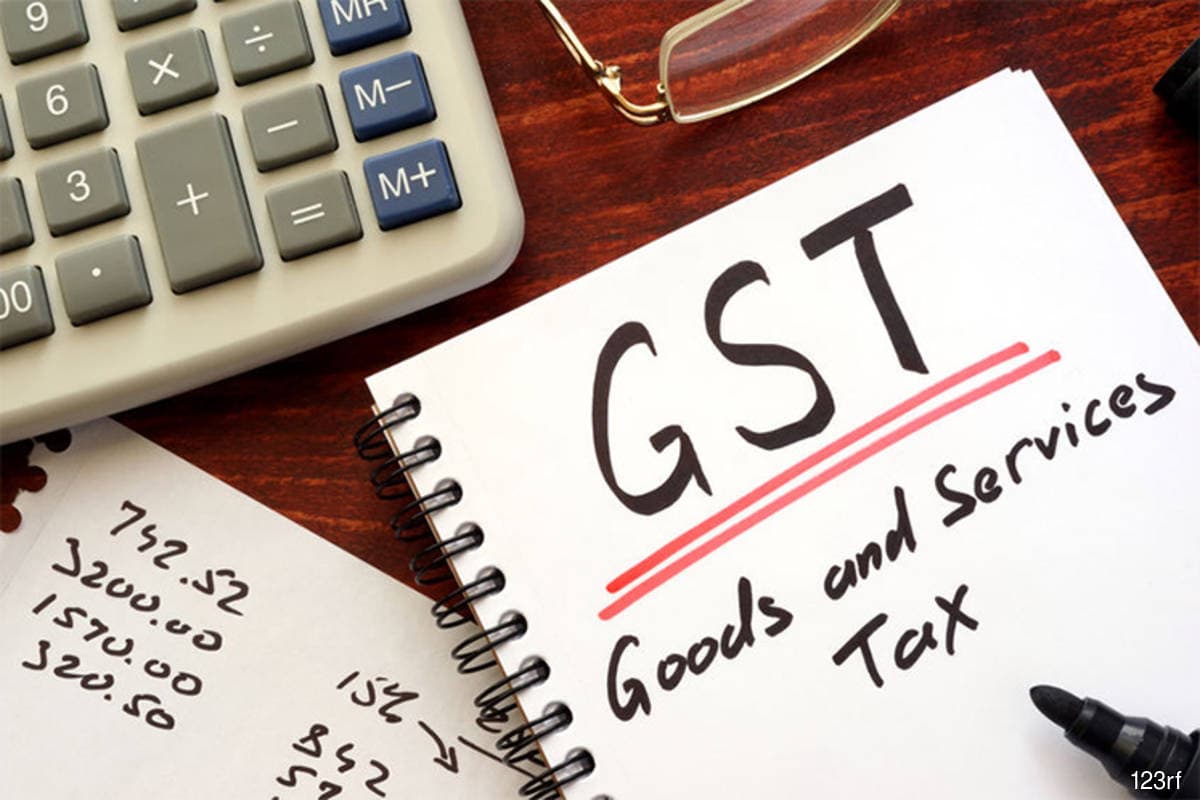
KUALA LUMPUR (June 13): World Bank Group lead economist for Malaysia Dr Apurva Sanghi said on Monday (June 13) the goods and services tax (GST) is better than the sales and service tax (SST) because the GST broadens a country's tax base and brings in more revenue.
"More than 170 countries around the world have adopted some kind of VAT (value added tax)/GST system, and that's one reason why the GST is more efficient than the SST. It (GST) is regressive because it is a tax on consumption and 60% of the economy depends on consumption.
“GST broadens the tax base and brings in more revenue,” he said at a virtual media briefing on Monday in conjunction with the World Bank's June 2022 Malaysia Economic Monitor report publication.
Apurva said GST may also increase compliance costs for businesses such as small and medium enterprises (SMEs).
"This is a lesson learned from Malaysia's GST 1.0 experience, which is important for SMEs, especially micro enterprises, to have a sufficient transition period, to set a threshold to exclude small and micro enterprises at least initially, and to really streamline and make the whole tax refund process more efficient," Apurva said.
Looking back, Malaysia announced a GST of 6% beginning April 1, 2015 before the SST scheme was reimplemented in the country on Sept 1, 2018 to replace the GST.
Last Wednesday (June 8), Finance Minister Tengku Datuk Seri Zafrul Tengku Abdul Aziz said the Ministry of Finance is looking at introducing the Fiscal Responsibility Act by tabling the bill at the Malaysian Parliament’s next session — scheduled to start on July 18 — to boost tax collection, which will be crucial to replenish the nation's coffers to finance the nation’s developmental and longer-term reform plans.
Tengku Zafrul, who officiated at the Malaysian Institute of Accountants (MIA) International Accountants Conference 2022, which was held virtually last Wednesday and Thursday, said the proposed Fiscal Responsibility Act aims to "broaden our tax base — including taxing the shadow economy — and improve tax compliance and administration towards helping boost tax collection”.
On Monday, the World Bank said in its June 2022 Malaysia Economic Monitor report that over the medium term, it is essential for Malaysia to rebuild its fiscal buffers and that the country's current fiscal landscape reveals two important things.
According to the World Bank, Malaysia’s medium-term fiscal consolidation needs to be gradual and the nation’s expenditure- and revenue-based measures are important although expenditure-based fiscal consolidation measures are preferable to revenue-based ones.
"The pace of medium-term fiscal consolidation should be gradual, to ensure that near-term economic recovery is not jeopardised. In addition, given existing spending rigidity, the consolidation is done through a combination of measures to raise revenue collection and at the same time, efforts to raise spending efficiency.
"In particular, putting in plans to move towards a more targeted subsidy framework that would benefit lower income households becomes even more relevant and timely. In addition, a properly designed and implemented Fiscal Responsibility Act could contribute to the achievement of long-term fiscal sustainability,” the World Bank said.
The World Bank said Malaysia’s efforts to rebuild its fiscal buffers through increased revenue collection and enhanced spending efficiency should remain a key policy priority.
"Going forward, for Malaysia, efforts to increase revenue collection through a more progressive tax framework need to be accelerated, with a clear implementation timeline. These measures may include removing exemptions from consumption taxes on non-essential items; expanding capital gains taxes; and exploring other forms of progressive taxes, including wealth taxes.
"Together with these revenue-enhancing measures, measures to improve spending efficiency should also be introduced. Achieving spending efficiency, in social sectors such as education, could entail the reallocation of spending items. In addition, better targeting of social safety nets programmes through more effective targeting could raise spending efficiency,” the World Bank said.